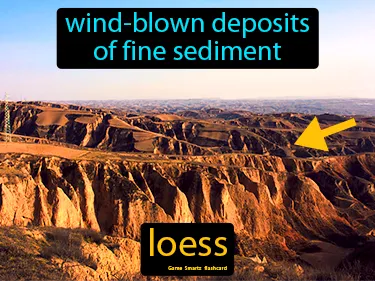The Huang He Valley
History
bureaucracy
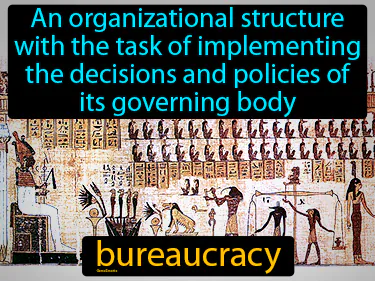
An organizational structure with the task of implementing the decisions and policies of its governing body. Bureaucracy. Bureaucracy is a system of managing government or large organizations that uses hierarchical levels of authority and set procedures.
Confucianism
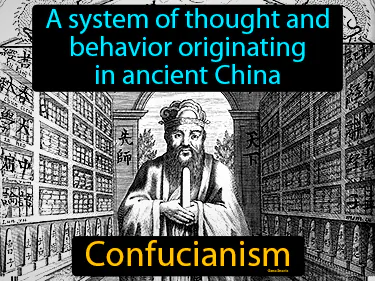
A system of thought and behavior originating in ancient China. Confucianism. Confucianism is a philosophy that emphasizes moral values, social harmony, and respect for hierarchy based on the teachings of Confucius.
Confucius
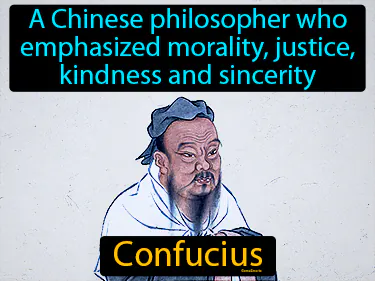
A Chinese philosopher who emphasized morality, justice, kindness, and sincerity. Confucius. Confucius was an influential ancient philosopher whose teachings shaped Chinese culture and values.
Duke of Zhou
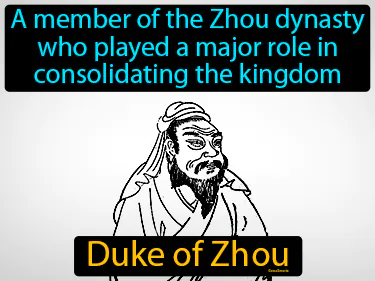
A member of the Zhou dynasty who played a major role in consolidating the kingdom, Duke of Zhou. The Duke of Zhou was an important political leader in ancient China who helped establish the legitimacy and stability of the Zhou dynasty.
dynasty
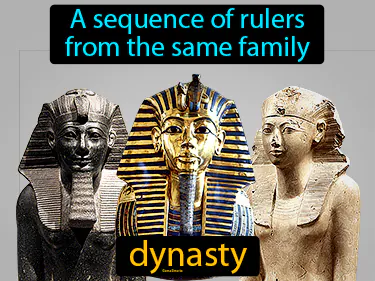
A sequence of rulers from the same family. Dynasty. A dynasty is a series of rulers from the same family line who govern a country or region over generations.
emperor
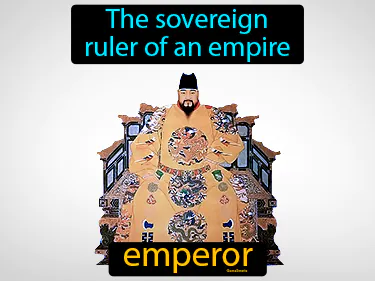
The sovereign ruler of an empire. Emperor. An emperor is a powerful leader who rules over multiple territories or nations.
famine
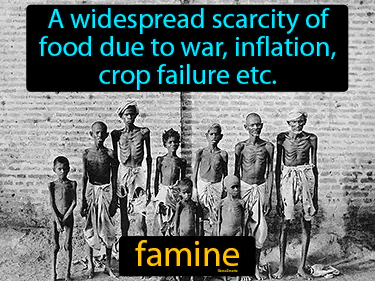
A widespread scarcity of food due to war, inflation, crop failure, etc., is famine. In history, famine refers to periods when large populations suffered from extreme food shortages, leading to hunger and death.
Fu Hao
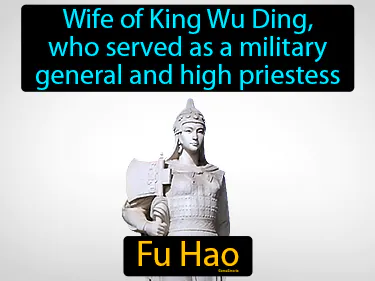
Wife of King Wu Ding, who served as a military general and high priestess. Fu Hao. Fu Hao was a prominent figure in ancient China, known for her exceptional roles as both a military leader and religious figure during the Shang Dynasty.
gorge

A deep cleft resulting from weathering and the erosive activity of rivers. Gorge. In history, a gorge was often a strategic defensive position due to its steep and impassable terrain.
Grand School

The highest rank of educational establishment in Ancient China Grand School. The Grand School was the most prestigious institution where future government officials were educated.
Hsiang Yu
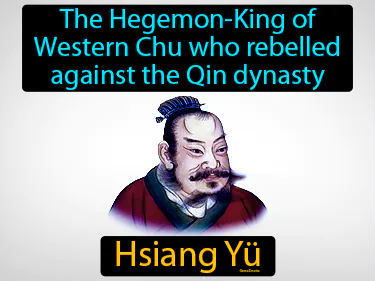
The Hegemon-King of Western Chu who rebelled against the Qin dynasty. Hsiang Yu. Hsiang Yu was a Chinese warlord known for his role in overthrowing the Qin dynasty and briefly becoming a major power during the Chu-Han Contention.
Laozi
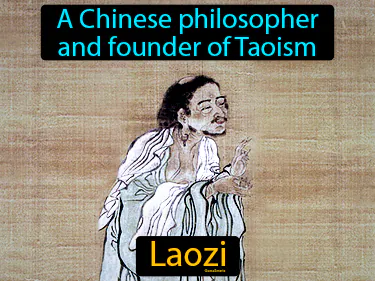
A Chinese philosopher and founder of Taoism. Laozi. Laozi is an ancient figure who introduced the spiritual philosophy of Taoism, emphasizing simplicity, humility, and harmony with nature.
legalism
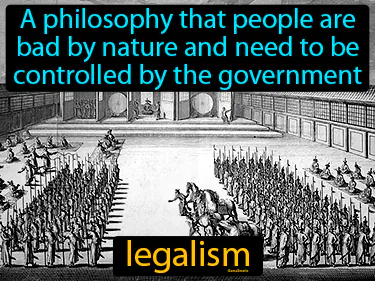
a philosophy that people are bad by nature and need to be controlled by the government. legalism. Legalism is an ancient Chinese philosophy emphasizing strict laws and harsh punishments to maintain order in society.
Liu Pang
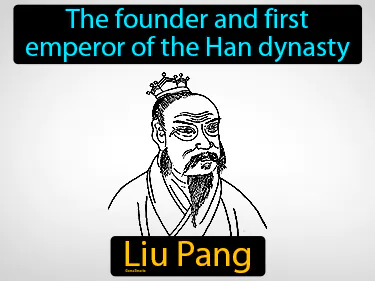
The founder and first emperor of the Han dynasty, Liu Pang. Liu Pang, also known as Liu Bang, established the Han dynasty, which became one of China's longest-lasting and most influential dynasties.
Mandate of Heaven
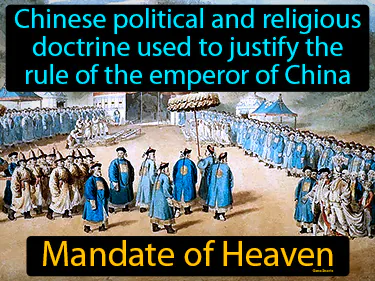
Chinese political and religious doctrine used to justify the rule of the emperor of China. Mandate of Heaven. It is the ancient belief that heaven granted emperors the right to rule based on their ability to govern well and fairly.
oracle bone
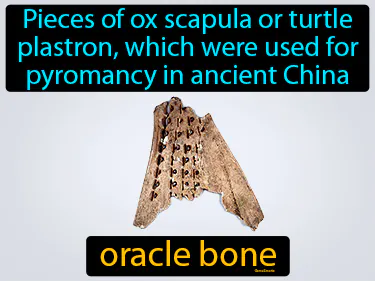
Pieces of ox scapula or turtle plastron, which were used for pyromancy in ancient China. oracle bone. Oracle bones are ancient Chinese artifacts used by diviners to predict the future by interpreting cracks made by heating them.
province
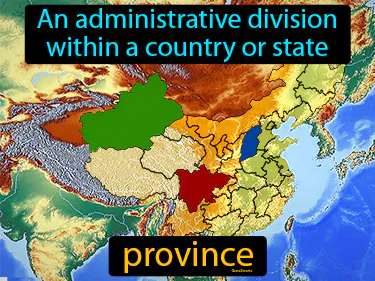
An administrative division within a country or state. Province. In history, a province is a region governed as part of a larger empire or country, like the provinces of the Roman Empire.
Shi Huangdi
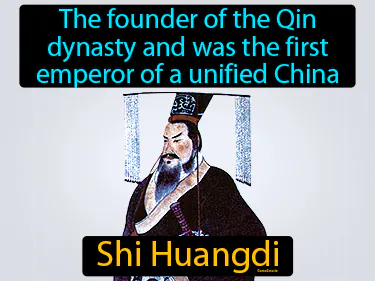
The founder of the Qin dynasty and was the first emperor of a unified China. Shi Huangdi. Shi Huangdi was the first emperor who united China under one rule.
steppe

An ecoregion characterized by grassland plains without trees. Steppe. Historically, steppes were home to nomadic groups like the Mongols who used them for their vast horse-based cultures.
Taoism
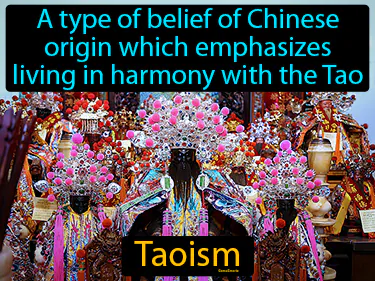
A type of belief of Chinese origin which emphasizes living in harmony with the Tao. Taoism. Taoism is an ancient Chinese philosophy and religion that focuses on living in harmony with the natural order of the universe.
Wang Mang
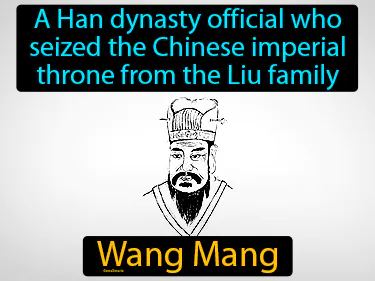
A Han dynasty official who seized the Chinese imperial throne from the Liu family. Wang Mang. Wang Mang was a Chinese ruler who tried to implement significant reforms but ultimately failed, leading to his downfall.
Warring States Period
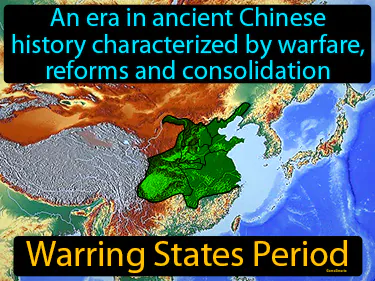
An era in ancient Chinese history characterized by warfare, reforms and consolidation. Warring States Period. It was a time when different regions in China fought for power before the country was unified under the Qin dynasty.
Wudi
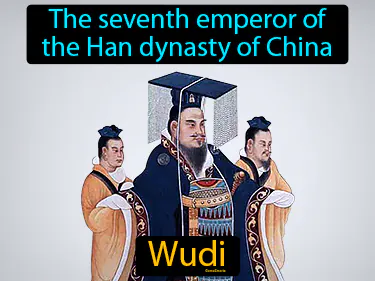
The seventh emperor of the Han dynasty of China Wudi. He was a powerful ruler who expanded China's territory and strengthened its central government.
Wuwang
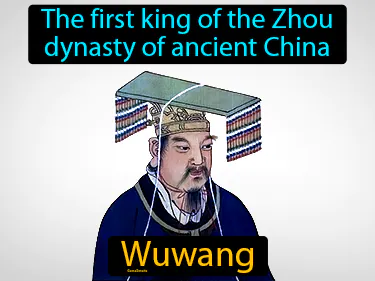
The first king of the Zhou dynasty of ancient China. Wuwang. Wuwang was the founder who overthrew the Shang dynasty and established the Zhou dynasty around 1046 BC.
